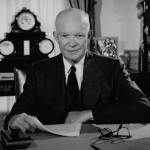Maria Altmann, heiress to Gustav Klimt paintings which were later sold for $328 million, has died in Los Angeles on February 7, 2011. She was 94.
When the Austrian state TV network ORF asked me to do an in-depth interview with Maria Altmann in 2000 — after Altmann had sued the Republic of Austria — I was a little apprehensive at first. How would she react to a reporter raised in the country she was suing for the injustices she alleged were done to her family during the Nazi era?
So I phone Mrs. Altmann to test the waters. But my fears prove to be completely unfounded. On the countrary! The moment she hears I was born in Vienna (as she was), Altmann immediately falls into perfect German slightly tinged with a distinct Viennese upper-class accent: “Ach, dann können wir ja auch wienerisch reden!” And she proceeds to tell me enthusiastically of the “wonderful” youth memories she has of the old imperial city by the Danube, the delicious pastries, the architecture, and the music.
She was 84 years old at our first conversation, still very busy working as fashion consultant and designer, interested in art and classical music, well read, highly energetic and articulate. I knew then that I was about to meet a most interesting and remarkable lady.
Since then, Mrs. Altmann’s story has been well publicised. Born into a family of wealthy Jewish industrialists in 1916, she was 22 and freshly married when the First Austrian Republic (the German speaking remnant left over after the disintegration of the Austro-Hungarian Empire), joined the German Third Reich in the Anschluss of 1938. Like many other Jewish residents at the time, Altmann’s (and her husband’s) family assessed the situation correctly and subsequently scattered, leaving almost their entire fortune behind.
Among the family’s possessions were various pictures by the still relatively unknown Gustav Klimt; among them were portraits commissioned by Altmann’s family.

Adele Bloch-Bauer I, by Gustav Klimt, 1907. Oil and golden and silver foil on canvas. 138 × 138 cm. Click to enlarge.
Compared to what happened to others, Altmann considered herself “very lucky”. After her husband’s arrest, his brief detention and the couple’s covert flight from Vienna, the Altmanns were able to make a new, peaceful life in America, where they also achieved financial security.
Anyway, so we decide to shoot the interview at Altmann’s home in Cheviot Hill, a small and neat suburbian residential area in West Los Angeles, where the widowed mother of four children has lived for a long time. We agree to shoot everything in German.
Altmann is well groomed and dressed and exudes an aura of ladylike poise and charm. As usual, I let the cameraman pick the best setting (which he finds in the backyard) and while the crew is setting up, I follow the usual ritual: engage in a little small talk with the subject in private, then go over a broad description of my questions, have the microphones attached, do a light and sound check. Not easy to endure at the age of 84.
The interview goes very well. Altmann gives long answers (luckily I’m not the one who has to edit this) and turns out to be patient and charming. We change tapes several times.
But then, we run into a problem: every home in the area has a yard. And every yard seems to be maintained by Latino “mow and blow” crews. And they all arrive at the same time with their noisy lawnmowers, power cutting tools and leafblowers.
Oh, the ruckus! My sound guy is wringing his hands (and I have secret fantasies of wringing some necks). We decide to take a little break, but to no avail. As soon as one crew of yard workers is done, another starts up a lawnmower or damn leafblower somewhere else in the neighborhood. These things aren’t even legal.
I am beginning to get nervous. We have already shot two thirds of the interview; going inside now would be a continuity problem. Besides, I am under orders to ship the tapes off right away. Meanwhile, the sunlight is beginning to fade, and so does Altmann’s ability to concentrate. Great.
I call a break again (probably the for the 5th time) and go outside to talk to the yard workers. Of course, they pretend to understand no Ingles. I know the game, so I put on my crazy gringo act and somehow convince the workers to take a break for a few minutes. I don’t know if they agree to hold the work because of the bribe I offer (for which I have no expense account, of course), because they think I am nuts (and possibly dangerous) or because they genuinely feel bad about preventing me from doing my job.
Whew! The cameraman plays some tricks with the white balance to compensate for the different light temperature as much as possible, and we hurry to continue and finish up.
Altmann is “terribly sorry” for all the trouble even though she didn’t cause it. She invites me for coffee, which she prepares herself.
I send the crew on their way. They are eager to get on the freeway, since rush hour has begun. Altmann has lots of time, enjoys the company, and the opportunity to talk about Vienna auf Deutsch. I know (and appreciate) that people from Vienna take their Kaffeejause (coffee break) very seriously.
I am amazed that Altmann, through it all, still feels connected with Austria. I recall pictures of the Alps and mementos of Austrian cities in her home. Whatever ill feelings she might have are directed at the individuals whom she believes have wronged her, but not at the entire place or German culture as a whole. Most likely, this attitude is what allowed her to cope and carry on with her life. It’s not even about the money, she insists, but about justice. Money, she says, has never meant anything to her. “At this stage in my life, I would not even know what to buy with it.”
Altmann keeps pouring coffee and brings plates of food, and it is long after darkness has fallen when I finally get on my way. She invites me to come back some other time, “zum Kaffee” (for coffee).
I am sad to say that I never took her up on the offer. Like so many times in life, I often thought about making a phone call to follow up. But then, I am always extremely busy, and something else always came up. As so often, I now deeply regret that time has run out.
The story of the Klimt pictures and Maria Altmann, the old lady who fought the Republic of Austria (and won), exploded into the global headlines. In the end, the Österreichische Galerie Belvedere released the paintings to Altmann. I was able to see them at the Los Angeles County Museum of Art before they were sold off.
Altmann told me (and others) that she sincerely wished and hoped that the pictures would be visible to the public, but sadly this is only partially the case today.
The most famous of the paintings, Adele Bloch-Bauer I (1907) is one of several portraits of Altmann’s aunt. It was acquired by Ronald S. Lauder for $135 million in 2006. It was the highest price paid for a painting to date. Adele Bloch-Bauer I is currently at Lauder’s Neue Galerie in Manhattan, but the other pictures have disappeared from public view.
My favorite image from the group is currently in a private collection:

Birkenwald/Buchenwald (Birch Forest/Beech Forest), 1903. By Gustav Klimt (Austrian, 1862-1918). Oil on canvas. 110 x 110 cm. Private Collection. Click to enlarge.
I wonder what Klimt would have thought of all this. He died in 1918. I admire his words: “If you cannot please everyone with your deeds and your art, please a few. To please many is bad.” You see, Klimt was quite a rebel in his days.



